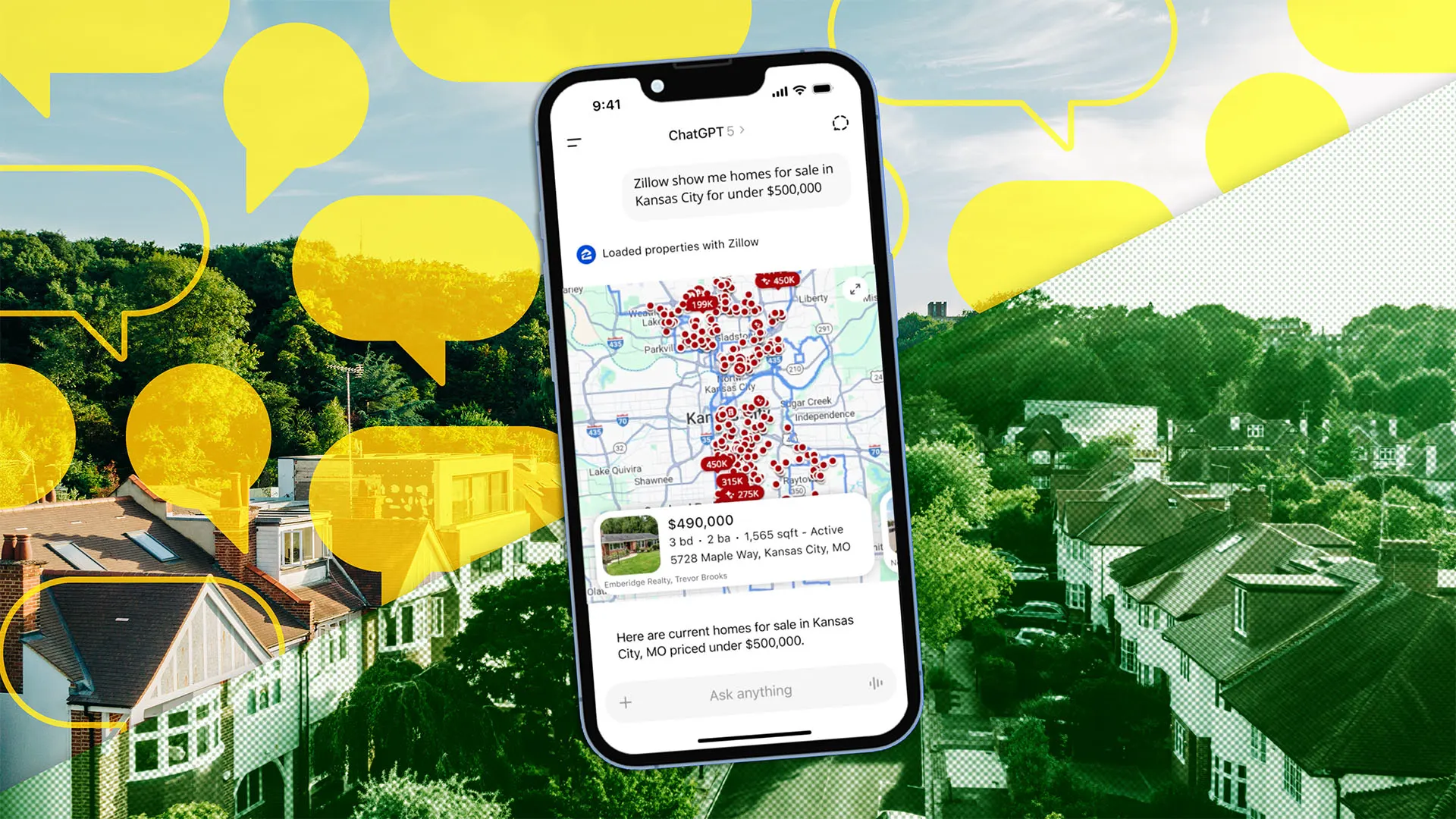Copyright Inc. Magazine

At OpenAI’s DevDay conference in early October, cofounder and CEO Sam Altman announced the addition of “apps” to ChatGPT—self-contained software programs that the large language model platform can invoke and use. One of the first such apps announced at the conference was Zillow, the industry-leading online real estate marketplace. To connect with Zillow on ChatGPT’s website or app, users can simply ask to use Zillow by writing a message like, “Hey Zillow, find me 2 bed, 1 bath condos selling for $1 million in Brooklyn, New York.” You can also use the @ sign to ensure Zillow is invoked. These messages should direct ChatGPT to pull up a window containing a map of your neighborhood and a collection of listings that fit your specifications. As users get deeper into the research process, they’ll be encouraged to switch over to the full Zillow website and app. Here’s how Zillow and OpenAI collaborated to create the app in less than two months. Roughly six weeks before Altman’s announcement, a group of Zillow executives met with a contingent from OpenAI, who detailed the ChatGPT-maker’s system for creating apps within the platform. They explained the two crucial pieces of the system were OpenAI’s Apps Software Developer Kit, which gives developers the tools necessary to create ChatGPT-specific apps, and the Model Context Protocol (MCP), an open-source standard developed by rival AI company Anthropic, which allows developers to connect external data to ChatGPT. Featured Video An Inc.com Featured Presentation “It was very early days,” says Zillow chief technology officer David Beitel. “They had a few mock ups and a little bit of code working.” But Beitel says Zillow is committed to meeting customers where there are, and given that OpenAI recently announced ChatGPT has passed over 800 million weekly users, it made sense to take the plunge with the AI market leader. Beitel says that Zillow got assurances they would have full control over their own data and the user interface of the app, which are necessities in a highly regulated industry like real estate. A small team got to work building the ChatGPT App, working closely with an OpenAI team both in person and remotely over Slack channels. Because Zillow was working on this ChatGPT app while OpenAI was still designing the framework for this new tech, the process involved a lot of trial and error. “Things that were working would break the next day because they were making other changes,” says Beitel, “which is natural, that’s just part of the process.” Right up until the day before launch, he says, the Zillow team was making changes to the app. Beitel, a founding employee of Zillow, is quick to note that the company has been heavily using artificial intelligence and machine learning since its launch in 2006. For instance, he says, for nearly two decades the company’s patented “Zestimate” system has used machine learning models to estimate the market value of a home. Internally, Beitel says Zillow is using a mixture of AI products, including Google’s Gemini, OpenAI’s enterprise plan, and Glean, a startup that provides a platform for connecting various data sources into a personalized work assistant for employees. According to Beitel, these tools have collectively saved Zillow employees over 275,000 hours. “We don’t see this as replacing the employee or the agent,” Beitel says, “we see this as making them a super agent.” By using large language models, he says, Zillow can provide customers with much more personalized and useful information to help them navigate the home buying and selling journey. On the engineering side, Beitel says that Zillow has embraced AI-assisted coding, and is even using vibe-coding platforms like Replit to create working demos of new ideas rather than just writing up pitches. “The home buying process is very complicated,” says Beitel. “There’s lots of steps, there’s lots of people involved, there’s lots of information, there’s lots of decisions. It can take months.” These complications make the real estate sector prime for AI disruption. Beitel says that Zillow was energized at the prospect of being the first (and currently only) real-estate app on ChatGPT. “We want to be there,” he says, “we have the best product, the right brand, and the right customer experience that OpenAI wants to put us in front of their customers.”



